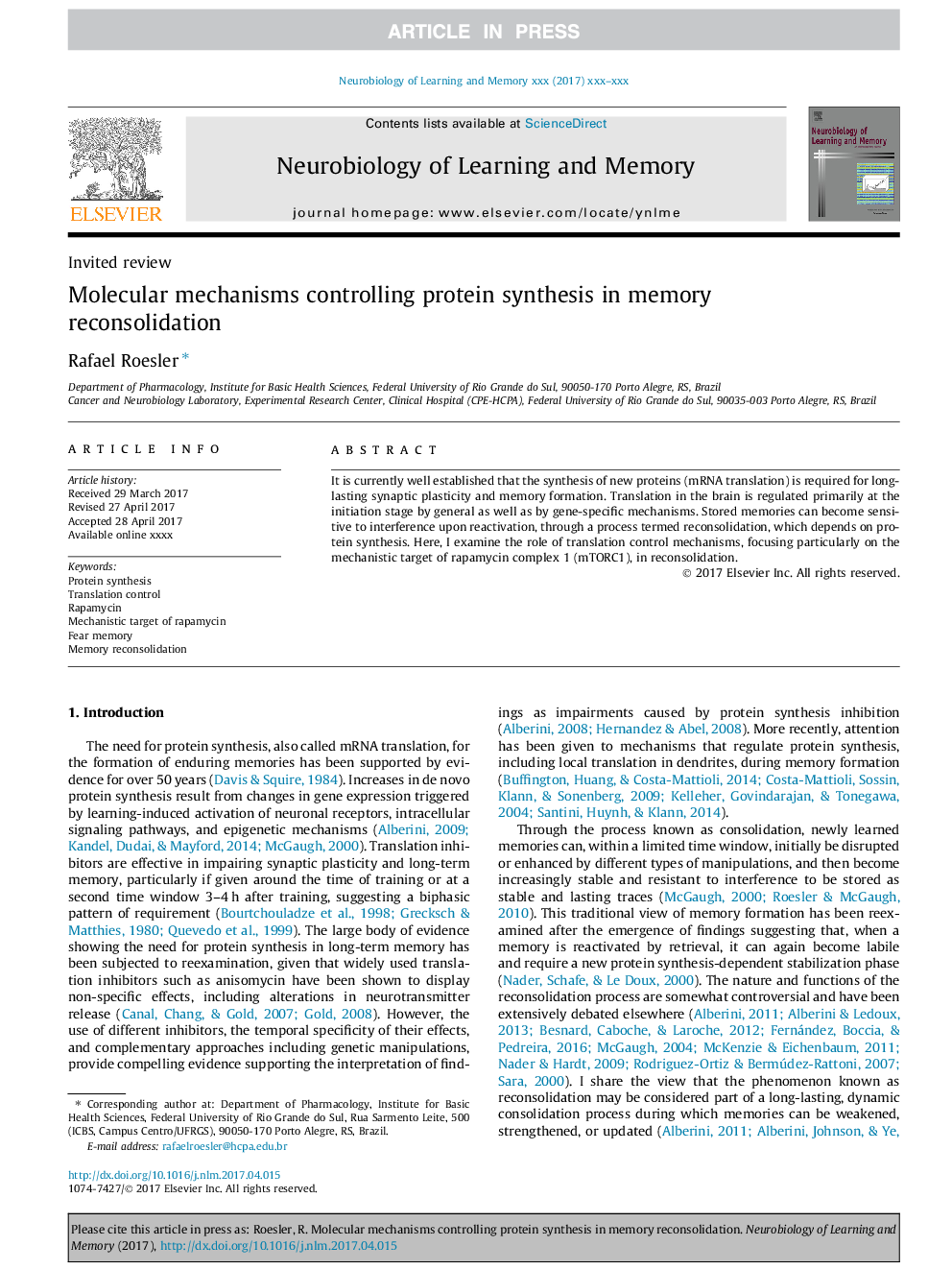| Article ID | Journal | Published Year | Pages | File Type |
|---|---|---|---|---|
| 5043215 | Neurobiology of Learning and Memory | 2017 | 11 Pages |
Abstract
It is currently well established that the synthesis of new proteins (mRNA translation) is required for long-lasting synaptic plasticity and memory formation. Translation in the brain is regulated primarily at the initiation stage by general as well as by gene-specific mechanisms. Stored memories can become sensitive to interference upon reactivation, through a process termed reconsolidation, which depends on protein synthesis. Here, I examine the role of translation control mechanisms, focusing particularly on the mechanistic target of rapamycin complex 1 (mTORC1), in reconsolidation.
Keywords
Related Topics
Life Sciences
Neuroscience
Behavioral Neuroscience
Authors
Rafael Roesler,
